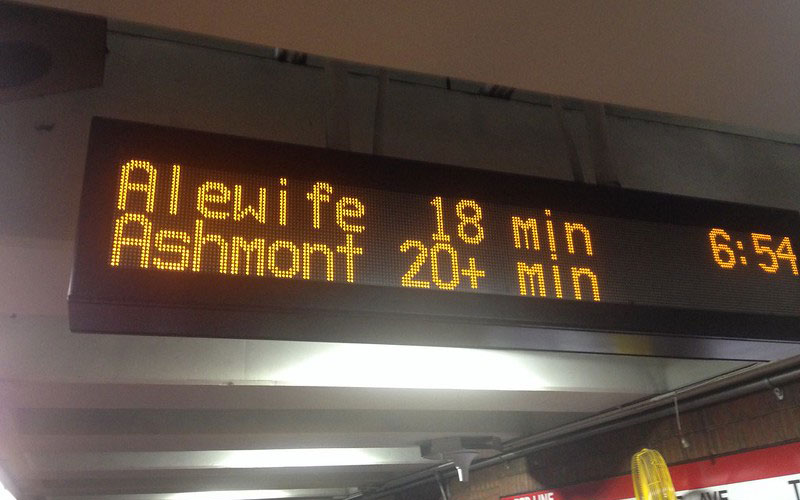
Photo: Ethan Marcotte / CC BY-NC-SA 2.0
December 22, 2021 (BOSTON, MA) – A new report from Conservation Law Foundation (CLF) has found that the chronic delays in the MBTA system are significantly limiting access to jobs in eastern Massachusetts, with communities of color and low-income communities disproportionately feeling the effects.
“Public transportation offers a lifeline, especially for communities with few other options,” said Staci Rubin, Vice President of Environmental Justice at CLF. “The chronic, frequent delays on the MBTA are thwarting economic growth in the region, and communities of color and low-income communities are bearing the brunt. It’s clear that the status quo is broken, and the MBTA must step up and create a system that works for all riders, not just wealthy ones.”
Unsurprisingly, the report found that wealthier areas closer to the urban core like Beacon Hill, Back Bay and South End have the greatest access to transit and therefore greater access to jobs. The study also found that even in areas with good access to transit like Mission Hill and Chinatown, frequent delays disproportionately affect low-income residents who are not able to hop in their car or a ride share to get to work when the T is delayed.
Areas like Lynn, Mattapan, Malden, Revere, and Chelsea not only have poorer baseline access to transit on a good day, but these communities are also home to transit-dependent communities that have the most to lose when delays inevitably occur.
Overall, people of color, low-income households, and limited English proficient households currently experience the highest loss of economic opportunities due to transit delays. It is essential that the MBTA eliminate delays to increase access to jobs, especially for communities hit hardest by the pandemic. The authors suggest several improvements that the MBTA can make to address these impacts:
- Universally increase service reliability with the Bus Network Redesign.
- Improve service reliability in geographic areas that are impacted severely by delays, are more reliant on transit, and have high numbers of priority populations.
- Undertake climate resilience studies and planning to understand how extreme weather will further exacerbate delays. The MBTA should prioritize the most at-risk infrastructure for investments and upgrades.
- Prioritize increased service on routes in areas where residents are less likely to be able to work remotely.
CLF experts are available for further comment.
###
